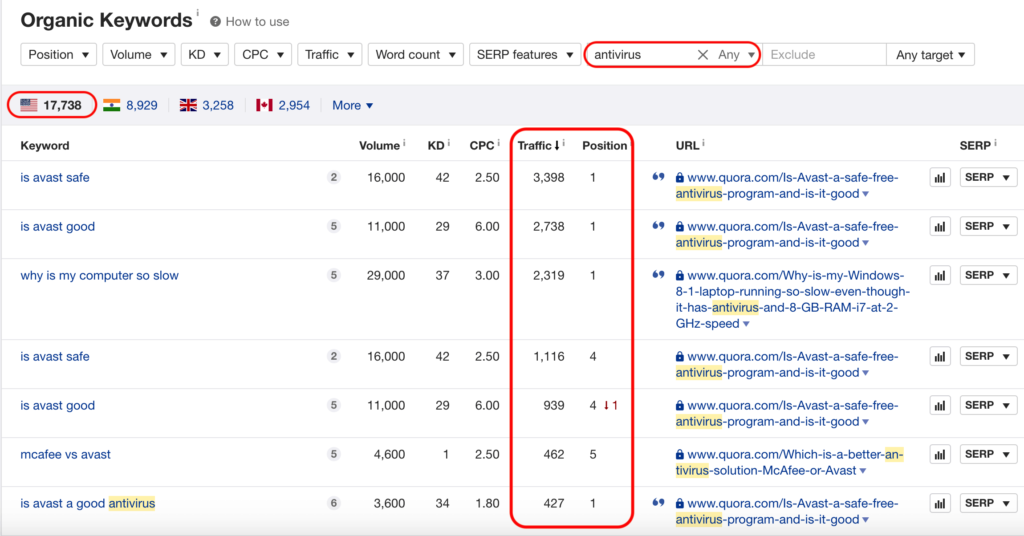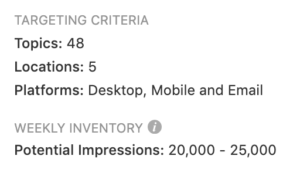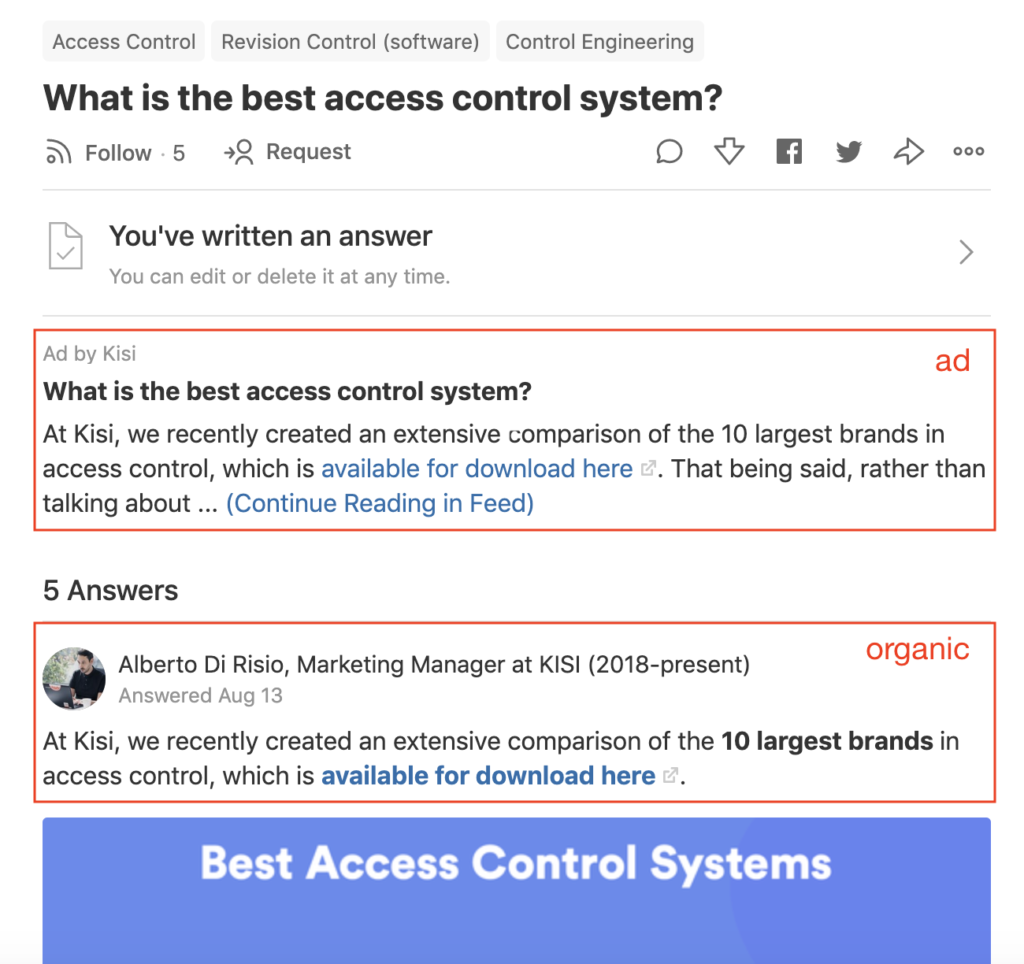In this post I will show you why Quora should be under your radar and how you can make the most out of this channel and boost your marketing efforts. This article covers both paid and organic campaigns and I am going to show you:
-
How to assess Quora’s potential for your market
-
How to target the right topics
-
How to organically drive traffic from content contributions
- How to run successful campaigns with Quora Ads
Why Quora?
According to SimilarWeb data, Quora attracts over 500 million visitors per month, making it one of the 100 largest websites worldwide, and the largest knowledge platform after Wikipedia. Such impressive growth largely comes from the company’s strong positioning in search results, and in fact, over the past 4 years, Quora has grown its organic reach by around 400%. This means that for millions of searches, Quora is in fact on one of the first touchpoints for users looking to learn more about a certain product or service. To sum it up, ignoring this platform is probably not a good idea! In this blog post, I will show how you can easily turn Quora’s existing reach into leads for your business.
How to assess the potential for your market
The most important thing to understand is to what extent Quora captures traffic that is relevant to your industry. Much like you would do when it comes to SEO or paid search.
Tools like Ahrefs allow you to see very easily for which keywords a certain domain ranks for in Google’s top results. Let’s imagine that you are in the PC antivirus industry, you can filter Quora’s rankings for keywords that are relevant to you.

The filter applied identifies keywords or URLs containing the term “antivirus”. This allows you to find great queries even when they do not contain the exact term you included.
As you can see in this example, tens of thousands of users visit these pages every month and while ranking for all of those keywords would require a lot of effort, getting exposure on the Quora pages that are already ranking is a whole lot easier! The best part is that in many cases the visibility of your answer (or your ad) will be quite significant, given that Quora results very often end up in Google’s featured snippets.

How to provide value to Quora’s users
Why is Quora a great platform? Two main reasons, the first one is that Quora is designed to intelligently match people that are knowledgeable in a certain field with people looking for answers. The second reason is that it hasn’t been exploited by marketers yet!
Once you have established that there is in fact potential for your industry, the first thing you’ll want to do is to do an export of all of the relevant queries for which Quora results in the top 3 or top 5 search results on Google. The next step would be to clean up the list to ensure you target only topics that are indeed relevant. Now, when it comes to relevancy, you should be looking for topics where you will find your target audience, not only topics that are strictly related to your product or service. For example, someone looking to learn more about SEO would likely be also interested in reporting tools or audience measurement software, so you may want to expand your reach to topics that go beyond what you offer if you think your potential customers will be there.
Contrary to what you may think, it’s often relatively easy to get traffic by answering questions on Quora. Just like on Google, you are not going to build any traffic overnight, but it will not take very long until you see some results.
How to reply to a question on Quora
First of all, you’re going to need a profile, and maybe ask a couple of people in your team to create one too (if they don’t have one already). Once that’s done, you can get started. Here are some key points to follow if you want your answers to rank at the top for each question and maximize traffic and exposure:
1 – Have a complete profile. People trust answers coming from real people and highlighting what makes you an expert in certain fields is a very effective way to gain trust. Make sure to describe who you are, where you are based, what’s your current role professionally, and so on.
2 – Include a disclaimer. You should be very clear and upfront about what makes you knowledgeable about a certain matter, and disclaim which interest you may have in discussing the topic. So in the example from before, if you are the CEO of an Avast competitor, you should be transparent about it. And you shouldn’t be afraid to do so, users care about answers that provide value, no matter from whom they come from.
3 – Long-form content outranks short answers. You will notice that many answers are quite shorts and not a lot of effort was put into them, and are therefore very easy to outrank. Try to approach this as if you were writing something for your company’s blog, not necessarily matching the same length but at least in terms of the quality of the content.
4 – Research-backed content outranks personal opinions. If you are writing an article you would always link to the different sources and back claims with data or research. Well, the same should happen when writing on Quora! This also gives you the chance to link to useful resources that are published on your website.
5 – Do not market your product directly. Quora is a great place to drive leads to your website, but your answers should never be a sales pitch. Instead, what you want to do is to provide information or data and then link the source (your website). If you talk about your company, it may be hard to be really product-neutral, but you should limit yourself to soft-selling it in an objective way.
6 – Make sure to understand what the current answers are missing. This is always the starting point if you want to create something better. For instance, if you notice that a certain question has comprehensive, long-form answers with hundreds of upvotes each, that means that competition is going to be very high and providing more value than what’s currently offered will be though. Luckily this will be the case only for a few of them, but it’s important that you adjust your approach based on the existing answers.
7 – Digestible, well-formatted content gets upvoted. Aside from the content of the answer itself, the other strongest ranking factor is the number of upvotes. In order for people to upvote your answer, you must be able to address the question in detail, yet in a digestible format. That’s why a clear structure, the use of bullet points, headlines, and images are all great ways to make your answer more valuable and more likely to be upvoted.
8 – This last point is optional, but it will give your answers a boost. Without abusing this practice, having a colleague of yours upvote some of your answers will help them rank faster to the first position. Just try to be cool about it and make sure that the answer is actually worth being upvoted!
What to expect from Quora organically
As you can see, answering just 3 questions got me 2.5k views within a few months. So you can do the math and estimate what would happen over time if I covered 300 questions. The important thing is that while you should spend some time in writing such answers, the effort is still just a fraction of what would go into creating a blog post for your website, so you may be able to get the attention of thousands of readers by investing a relatively low amount of resources.

To give you a more impactful example, this is Neil Patel’s profile (which it appears to have been inactive for the past two years).

That’s whopping 2.3M views, and make no mistake, his popularity may have helped his profile stand out a little, but for the most part, those are organic views anyone providing valuable answers would have been able to get. Not too bad for someone launching a business or simply looking to gain exposure within a certain industry.
At the end of the day, your goal is probably not to collect views but to drive users to your website and generate more sales. Although this may be obvious, it’s important that you include links to pages that are indeed relevant. It could be an explanatory article that goes in-depth on a topic you are touching or citing some research that is published on your website. You can go as far as sending users to gated content or to a product page, as long as it’s what users searching for.
How to run Ads on Quora
I won’t go into detail on every type of campaign you can create, how to build an audience or what targeting options are available. You can play around with all of those things, the platform works as it should and there are a lot of advanced functionalities you can rely on. What I will describe is how to run successful ads and what to expect from your campaigns.
But before that, one thing to keep in mind is that you can expect significantly lower CPC and CPL compared to what you are probably used to. Why? Like all platforms willing to push a certain product or format, Quora is giving you a great bang for your buck in order to get more advertisers to join the platform. This may not last forever, but right now this is a great time to test the channel.

Thanks to the research you’ve done, you already have a list of URLs, maybe hundreds of them, and you can directly target those specifically with sponsored answers. That means that instead of waiting until you covered all of those answers organically, you can already capture that traffic with ads.

There are two main approaches to running campaigns, hyper-targeted (and limited reach) or high-reach (but broader targeting).
Below is an example of how to capture most of the traffic from an answer, ranking as the first ad and the first organic result. Please note how both the ad and the answer have a very informational approach, not a sales one.

Above is an example of a hyper-targeted approach, which gives you maximum control over the relevancy of your ad (and therefore a much higher CTR, but is not very scalable). If you are looking for a wide, yet targeted reach, topic and keyword targeting is the way to go and similarly to how you can add negative keywords in Google Search Ads, here you can exclude a list of topics, keywords or answers.
How to track results
Whether you are looking at paid campaigns or organic reach, it’s very easy to ensure you can track and properly attribute Quora’s contribution to your lead generation efforts.
For organic reach: the easiest is to create an advanced segment looking at any referral from Quora. This way it will be very easy to add this traffic source to any report of yours.
For paid campaigns: Quora’s reporting is solid. Unfortunately, there is no integration with Data Studio or other reporting dashboards yet, but you can rely on data from the platform. There is also an API you can use, which launched in 2018, although it is still in beta.
Ultimately for paid campaigns, the most effective metric to look at is probably CPL, which you can benchmark with other sources. I would also advise thinking about the scalability of your campaigns, since for some industries it may not take very long before hitting the ceiling in terms of potential reach.
What do you think about smaller channels like Quora? Should marketers focus on them to ensure a more diverse acquisition mix? Leave a comment below!